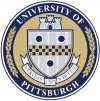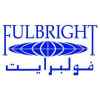DÉTAILS OPPORTUNITÉ
Récompense totale
0 $
Région
Pays hôte
Date limite
22 janv. 2018
Niveau d'études
Type d'opportunité
Financement d'opportunité
Pays éligibles
Cette opportunité est destiné à tous les pays
Région éligible
PhD position: Biomolecular and archaeological science investigations into drug and stimulant use in ancient Central Eurasia
The Department of Archaeology at the Max Planck Institute for the Science of Human History (MPI-SHH) is offering a 3-year funded PhD position exploring early drug and stimulant use through biomolecular and archaeological science methods. We are looking for a flexible, ambitious and dynamic student interested in potentially drawing on a range of modern archaeological methods, including the analysis of residues on ceramics (wine vessels and incense burners), archaeobotanical remains and dental calculus by means of protein, lipid, and metabolite screenings.
The study will focus on Central Eurasia, where early evidence has been proposed for the use of alcohols, cannabis, ephedra, Hyoscyamus, poppy, and tea in ancient and medieval times. Historians working in South and Central Asia have discussed the prominence of references to drug use in ancient sources – for example, the Vedic texts mention haoma (soma in Sanskrit), a ritual tea. Classical sources emphasize the consumption of wine and burning of cannabis incense in Eurasia, and Sima Qian focuses on the large quantities of wine produced in Central Asia. There has been a long-standing and lively debate over the reliability of these sources, although few attempts have been made to archaeologically test the claims. Plants such as cannabis and ephedra grow wild across this broad region, and have been recovered from burial contexts. Modern scientific methods hold promise for reopening this intriguing debate in Eurasian history, and potentially, providing insights into some of the earliest significant global uses of the stimulants, narcotics, and hallucinogens that we are familiar with today.
The student will work under the supervision of several institutional staff in the newly formed laboratory complex at the institute, which houses facilities for archaeobotanical, microbotanical, stable isotopic, lipid, proteomic, and material culture studies. These wide-ranging research facilities and the collaborative nature of the research agenda at this institute provide graduate students a unique learning experience, laying a strong foundation for a future career. The position is available from March 2018, and the deadline for applications is January 22, 2018.
This PhD position will explore the use of ritual, medicinal, hallucinogenic, stimulatory and narcotic plants and fungi across Eurasia. The student is expected to:
- Participate in field excavations at one of our ongoing research sites. This will include supervising sampling of ceramics and dental calculus in Central Asia and Mongolia.
- Collect comparative material and press herbarium specimens in the field.
- Analyze archaeological samples in the laboratory at the Max Planck Institute under the supervision of relevant group leaders (Robert Spengler, Patrick Roberts, Alison Crowther, and Jessica Hendy).
- Collaborate with a range of different team members and project partners.
- Draw on a range of archaeological science methods, potentially including, for example, methods for analyzing macro and micro plant remains, biomarkers and proteins, as relevant.
- The student is expected to follow their research project to the publication stage and write up the final results over the course of the PhD. PhD is by publication rather than thesis.
We seek applicants who have:
Essential:
- A Master’s degree or qualification equivalent to the German diploma (essential) in Anthropology, Archaeology, or a related subject (Masters students who will graduate soon may also apply).
- Training and experience in archaeological field or laboratory research, or a relevant background in biology.
- Enthusiasm about learning and exploring research topics in the archaeological sciences.
- Willingness to work as part of a research team, while simultaneously running their own research agenda.
Advantageous:
- Experience with laboratory techniques in the biological sciences or archaeological sciences, in any methodological area.
- Experience working in Central Asia, China, Mongolia, or anywhere in the ex-Soviet regions, or extensive experience in archaeological investigations generally.
- Experience writing scientific peer-reviewed publications and research reports.
- Knowledge of relevant languages.
- Familiarity with the history and archaeology of Central, East, or South Asia.
What we offer
- Opportunities to learn new skills in the archaeological sciences
- Integration into our interdisciplinary research group at the Max Planck Institute
- Support for field and laboratory research
- Cutting-edge facilities and equipment
- An excellent, supportive and dynamic research environment
- Supervision by world-leading researchers in the archaeological sciences
- An English language working environment
- Full funding for top applicants (3 years)
The Max Planck Society is committed to employing more handicapped individuals and especially encourages them to apply. The Max Planck Society seeks to increase the number of women in the sciences and therefore explicitly encourages women to apply.
For more information please click "Further Official Information" below.














